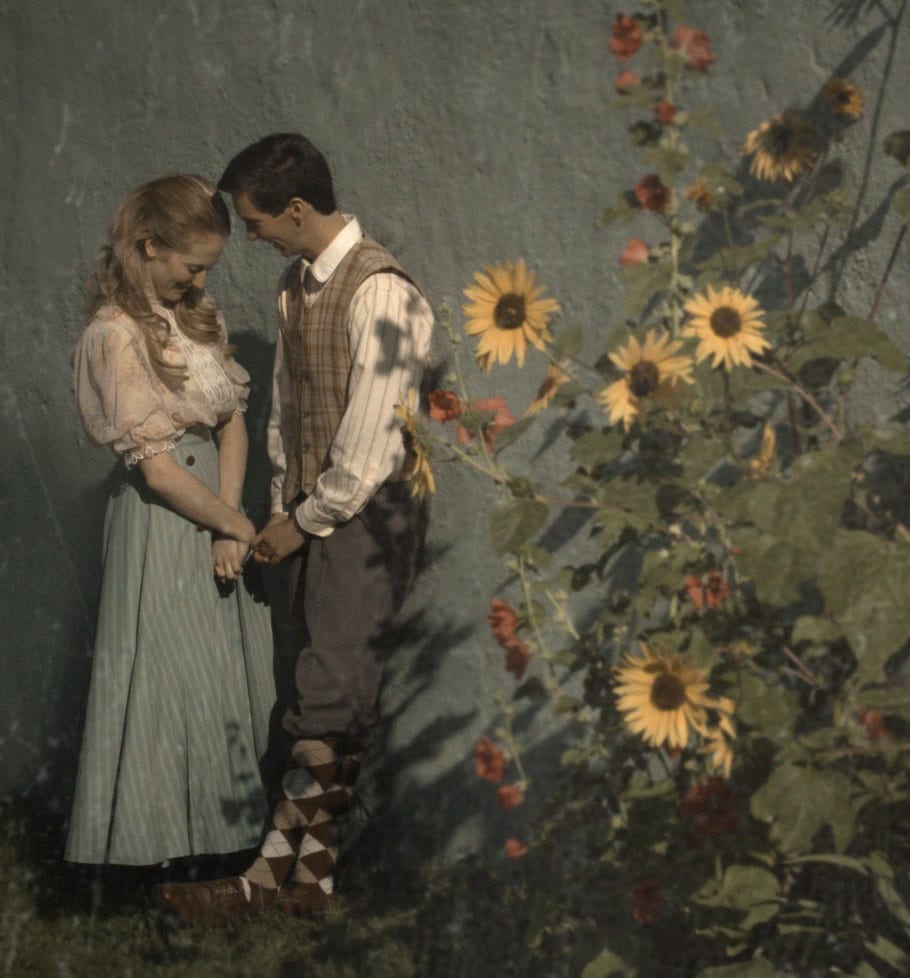PROVO — I have said for years that some of the most innovative theatre in Utah can be found on the campuses of the state’s universities. Our Town, playing now at Brigham Young University, confirms my belief that exciting, memorable productions are common occurrences at Utah colleges.

Thornton Wilder‘s Our Town is one of those workhorses of American theatre. This production is the fourth time UTBA has reviewed the show. It has appeared on Broadway five times, and the current production is the fifth ever produced at BYU. The three act play tells the story of life, love, and death in a typical small American town in the early 20th century. A large cast, few set pieces, and a strong script with universal themes makes Our Town a common production in this country.
But director Stephanie Breinholt, however, chose to eschew the traditional Our Town, which is famous for having actors pantomiming the use of their props and taking place on an empty stage. Breinholt kept the lack of props, but augmented the play by having some of the scenes filmed beforehand and projected onto a large upstage screen. As live and filmed performers interacted the strengths of each medium became apparent. The live performances felt authentic while the filmed performances benefited from the realism that comes from shooting on location and close-up views of actors’ faces. I have seen theatre productions meld filmed material with live performances before, but none were as successful as in Our Town. Actors stepped out of the screen and onto the stage (or vice-versa) flawlessly, and the interactions between stage and screen actors were executed perfectly with no awkward gaps in conversations or filmed actors looking at the wrong place. Moreover, the filmed scenes were an effective means of breaking down the fourth wall, which Wilder clearly intended to happen often in his play.

The only drawback of these filmed parts of the play is the fact that it seemed to undermine Wilder’s artistic vision for this play. Removing most of the trappings of modern theatre—a realistic set, props, complex lighting—put the focus on Wilder’s message and his simple yet beautiful script. Although I am grateful for an Our Town that doesn’t look like every other production of the play ever mounted, I question whether adding high tech elements is in keeping with the plain, direct tone of the script.
The casting pool at BYU must be among the largest in the state because even with two other productions on stage this week, the cast of Our Town is superb. As George Gibbs, Morgan Gunter is a sweet, personable young man whose charm never abated during the show. Gunter vaguely reminds me of a young Jimmy Stewart, and this boyishness worked perfectly for the character during the pivotal soda shop scene. Moreover, Gunter’s chemistry with Brittany Stahly (in the role of Emily Webb) was ideal for the scenes in which they fall in love with each other and marry. Stahly created a typical girl-next-door persona (which is literally what Emily is for George) that was endearing, even when she chastised George for his behavior. Stahly also was a powerful force in the famous third act in which her character is dead and decides to relive her twelfth birthday. Emily’s emotional pain was nearly palpable as she learned—too late—to pay attention to her loved ones.
As the Stage Manager, who serves as a narrator of the play, Jacob Swain expertly handles the homey language of Wilder’s script. Swain moves comfortably from addressing the audience directly to interacting with other performers as a member of the town (such as in the soda shop or in the milk deliveries).
Our Town is full of small juicy roles for the supporting cast, and the BYU actors obviously appreciate the care that Wilder took in creating the rank-and-file members of the town. Zach Grigg (as Wally Webb) and Gabriela Rodrigues (as Rebecca Gibbs) are wonderful at creating sibling relationships in the Webb and Gibbs families, and their interactions with their stage families got lots of laughs from the audience. Madison Dennis was terribly funny as the verbose Mrs. Soames, and the wedding scene had the perfect balance of humor and heart because of Dennis’s contributions. Jacob Baird was convincing as Professor Willard in the way that Baird made the technical terminology used by his character seem to fly out of his head effortlessly.
I also need to make special mention of Andrew Justvig, who played Howie Newsome (the town milkman) and Simon Stimson (the drunken organ player at the church). According to Justvig’s bio, he has cerebral palsy, and this makes some of his speech difficult to understand. However, any effort that it takes to listen to Justvig pays off handsomely in the final scene, when he performs Simon Stimson’s monologue. Including an actor with a noticeable disability in the cast was a bold choice for Breinholt, but it shows the director’s commitment to the art form. Good theatre demands an audience to pay attention and not merely be a passive observor of the action on stage. Including Justvig in the cast merely shows the level of trust that Breinholt places in the BYU audience.
Unquestionably, I can recommend BYU’s Our Town to any reader. Thornton Wilder’s best play is undiminished after 75 years, and every cast member produces a touching, laudable performances. Productions like this one are why I am an unashamed fan of the theatre departments in the state, and why I wish everyone were one as well.
[box type=”shadow”]Our Town plays November 22 and December 2-6, and 9-11 at 7:30 PM and on November 22 and December 6 at 2 PM at the Pardoe Theatre in the Harris Fine Arts Center on the campus of Brigham Young University. Tickets are $8-15. For more information, visit www.byuarts.com.[/box]
